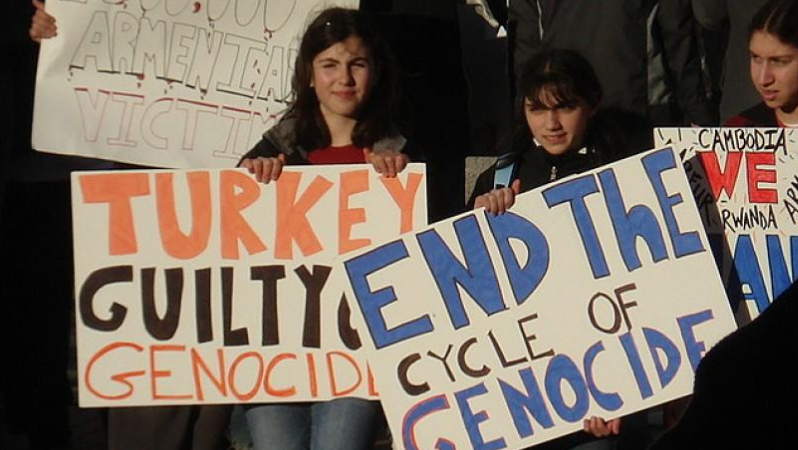Following the bombing near the Turkish parliament in Ankara on October 23, Turkey quickly retaliated with airstrikes on Kurdish targets, including Rojava in Syria, where Kurds have long sought autonomy. In Qamishli, a police station was hit, leading to deaths and injuries. While the Ankara bombing might be used as a justification, this is part of Turkey’s larger pattern of oppression against the Kurdish people, not only in Rojava but also within Turkey itself.
The Kurds, a stateless nation divided across several countries, have faced centuries of persecution. In Turkey, the Kurdish population has been systematically oppressed, their language and culture suppressed, and any move toward autonomy met with military action. The conflict has often been framed as a fight against the Kurdistan Workers’ Party (PKK), but in reality, it extends to all Kurdish resistance. In Rojava, Turkey’s attacks aim to destroy the Kurdish self-governing project born during the Syrian Civil War.
Life Under the Bombs in Qamishli
For the people of Rojava, bombings by Turkey are a grim fact of life. A journalist based in Qamishli summed it up perfectly: “We are used to being bombed by Turkey; this is normal life for us. You just do not know this because we are not important enough to be reported on.” Civilians in Rojava, many of whom have never been involved in combat, bear the brunt of Turkish airstrikes. Schools, hospitals, and homes are frequently targeted, and casualties are almost always civilians.
What sets Rojava apart is its unique social structure, an experiment in gender equality and decentralized governance. It’s a beacon of hope for Kurds in Syria, but that hope is fragile. Turkey views any Kurdish self-governance as a threat to its national security and has relentlessly pursued military campaigns to dismantle it.
Turkey’s Aggression Against the Kurdish People
While the people of Rojava face Turkish aggression daily, Kurds in Turkey are subjected to systemic discrimination. The Turkish government has long treated its Kurdish population with suspicion, and anyone advocating for Kurdish rights is quickly labeled a terrorist. Thousands of Kurds have been jailed under anti-terrorism laws, and Kurdish political parties face constant repression.
The Ankara bombing, while tragic, should not obscure the broader context of Turkey’s war against the Kurds. After every attack in Turkey, Kurdish regions brace themselves for retaliatory strikes. In this case, Turkey’s quick response with airstrikes in Qamishli shows how the country uses any excuse to continue its campaign of violence against the Kurds.
The Silence of the “International Community”
Despite the ongoing conflict, the international community remains largely silent on Turkey’s treatment of the Kurds. This is largely due to Turkey’s strategic importance as a NATO member. Western governments are willing to turn a blind eye to Turkey’s abuses in exchange for its cooperation on matters like counterterrorism and refugee management.
However, as long as Turkey is allowed to act with impunity, the Kurds will continue to suffer. Western powers, particularly those in Europe, have a moral responsibility to hold Turkey accountable for its actions, but so far, they’ve chosen to prioritize political alliances over human rights. As our source in Qamishli pointed out, the Kurds’ suffering rarely makes it to the headlines.
A Bleak Future for Kurds in Turkey and Rojava
The future for the Kurds, both in Turkey and Rojava, looks grim. Turkey shows no sign of easing its military campaigns, and without international intervention, the violence will only escalate. The people of Rojava, who have fought so hard to create a peaceful and just society, are at constant risk of losing everything to Turkish bombs.
For the Kurds in Turkey, the situation is equally dire. The Turkish state has systematically oppressed Kurdish voices, silencing any attempts at political organization. Kurdish culture and language are under siege, and those who dare to stand up for their rights are jailed or worse.
Conclusion: A Call for Accountability
As long as Turkey remains a NATO ally, it will continue to act with impunity. The international community must recognize the plight of the Kurdish people and hold Turkey accountable for its actions. The Kurds, whether in Rojava or Turkey, deserve the right to live in peace and with dignity. The world can no longer turn a blind eye to their suffering.
▪ ▪ ▪Related video: Was Turkey’s Modernisation Accompanied by a Loss of Religious Freedom?

